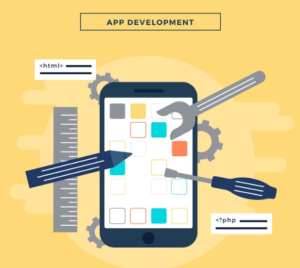Android Application Development: Android Essentials and Beyond
In the fast-paced digital era, mobile applications have become an integral part of our daily lives, transforming the way we communicate, work, and entertain ourselves. Among the myriad of mobile operating systems, Android stands out as a powerhouse, commanding a significant share of the global market. If you’re curious about Android application development, this comprehensive guide will serve as your gateway to understanding the essentials of creating cutting-edge Android apps.
Android Application Development Unveiled
1.1 What is Android Application Development?
Android application development is the process of creating software applications for devices that run the Android operating system. These applications can be developed for various purposes, including entertainment, productivity, communication, and more. With a diverse range of devices using Android, from smartphones to tablets and smart TVs, the opportunities for developers are vast.
1.2 The Rise of Android: Mobile App Developer’s Playground
Android’s open-source nature and widespread adoption have made it a playground for mobile app developers worldwide. Whether you are a seasoned developer or a newcomer, diving into Android app development opens doors to a thriving ecosystem with a global audience.
1.3 Latest Android Version: Keeping Up with Innovation
One of the crucial aspects of Android application development is staying updated with the latest Android version. As of my knowledge cutoff in January 2022, Android 12 was the latest version. However, it’s recommended to check for the most recent version to leverage the latest features and optimizations.
1.4 Android Programming: Mastering the Essentials
To embark on the journey of Android application development, a solid understanding of Android programming is essential. Java and Kotlin are the primary programming languages for Android development. Developers use these languages to build robust and interactive applications, catering to the diverse needs of users.

Android Essentials for App Development
2.1 Mobile Application Development Basics
Before delving into Android-specifics, it’s crucial to grasp the fundamentals of mobile application development. This includes understanding the software development life cycle, user interface design principles, and the importance of a seamless user experience.
2.2 App Development Software: Choosing the Right Tools
Selecting the appropriate development tools is a critical decision in Android application development. Android Studio, the official integrated development environment (IDE) for Android, stands out as a powerful tool equipped with features such as code editing, debugging, and performance profiling.
2.3 Programming on Android: Navigating the Development Environment
Android application development involves working with a diverse set of tools and technologies. Developers need to become adept at using Android SDK (Software Development Kit), understanding XML for layout design, and integrating APIs for enhanced functionality.
2.4 App Developers’ Toolbox: Essential Resources
Successful Android app developers leverage a variety of resources to streamline their development process. This includes community forums, documentation, and online courses. Staying connected with the vibrant Android developer community ensures continuous learning and problem-solving.

FAQs – Unraveling Common Queries
Q1: What Are the Key Steps in Android App Development?
Android app development typically involves the following steps:
- Conceptualization: Define the purpose and features of your app.
- Design: Create wireframes and design the user interface.
- Development: Write code using Java or Kotlin in Android Studio.
- Testing: Conduct thorough testing to identify and fix bugs.
- Deployment: Publish the app on the Google Play Store or other platforms.
Q2: How Does Android Differ from Other Mobile Operating Systems?
Android stands out with its open-source nature, allowing for greater customization and flexibility compared to closed systems like iOS. Android also boasts a more extensive range of devices and manufacturers.
Q3: Is Kotlin the Future of Android Development?
Kotlin has gained popularity as a modern, expressive, and concise programming language for Android development. While Java remains relevant, Kotlin’s features make it a compelling choice for many developers.
Q4: What Are the Best Practices for Android App Design?
Best practices for Android app design include prioritizing a user-friendly interface, optimizing for various screen sizes, adhering to Material Design guidelines, and ensuring efficient navigation.
Q5: How Can Developers Monetize Their Android Apps?
Developers can monetize their Android apps through various strategies, including in-app advertisements, freemium models, subscriptions, and one-time purchases. Choosing the right monetization strategy depends on the nature and goals of the app.
Conclusion
Android application development offers a thrilling landscape for developers, allowing them to create innovative and impactful solutions for a global audience. By mastering the essentials of Android programming, understanding the development environment, and staying updated with the latest trends, developers can navigate this dynamic field with confidence. Whether you’re a seasoned professional or a beginner, the world of Android application development welcomes those ready to explore, innovate, and contribute to the ever-evolving realm of mobile technology.

